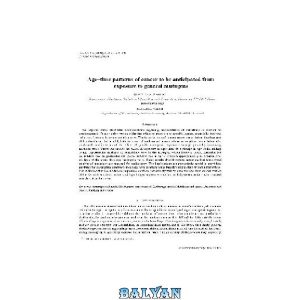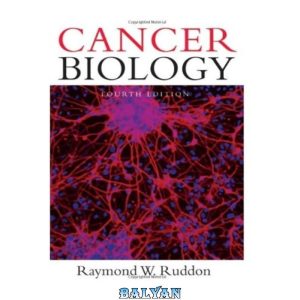ترجمه فارسی توضیحات (ترجمه ماشینی)
سرطان. نقش ژن ها، سبک زندگی و محیط
پیشرفت ها در 10 سال گذشته به سرعت در حال تغییر روش درمان سرطان است. در گذشته درمانها بر حذف یا از بین بردن سلولهای سرطانی متمرکز بودند، اما با درک بیشتر از نحوه عملکرد سلولهای سرطانی، دانشمندان در حال پیشرفت به سمت راههای جدید مهار و درمان این بیماری هستند. محققان امیدوارند که مطالعه پیشرفت سرطان به زودی ژنهایی را که متاستاز، گسترش سلولهای سرطانی را تنظیم میکنند، آشکار کند، به طوری که میتوان جلوی پیشرفت سرطان را قبل از مرگبار شدن گرفت. سرطان گذشته، حال و آینده تحقیقات سرطان را در قالبی خواندنی و جامع ارائه می دهد. این مقاله با خلاصه ای کوتاه از زیست شناسی سلولی آغاز می شود و با مروری بر نحوه عملکرد سلول های سرطانی و چگونگی کشف ماهیت این سلول ها توسط محققان ادامه می یابد. این کتاب از نزدیک به موفقیت ها و شکست های درمان های استفاده از دوزهای بالای شیمی درمانی یا پرتودرمانی می پردازد. وضعیت اسفبار بازماندگان سرطان؛ پیشرفت های اخیر در استفاده از ترکیبات فعال شده با نور، آنتی بادی های مونوکلونال، ژن درمانی و سلول های بنیادی که روش های قدرتمندی را برای مقابله با این بیماری ارائه کرده است. و همچنین تحقیقات گسترده ای که برای تعیین علل انواع مختلف سرطان انجام شده است. زندگینامه محققین این حوزه به همراه فهرست، واژه نامه و نمایه به این مرجع آموزنده و ارزشمند می افزاید.
Cancer. The Role of Genes, Lifestyle and Environment
Advances in the past 10 years are rapidly changing the way that cancer is treated. In the past treatments were centered on either the removal or killing of the cancerous cells, but with a greater understanding of the way cancer cells work, scientists are making advances toward new ways of containing and curing this disease. Investigators hope the study of cancer progression will soon reveal the genes that regulate metastasis, the spread of cancer cells, so that it is possible to stop cancer’s development before it becomes deadly. Cancer presents the past, present, and future of cancer research in a readable and comprehensive format. It begins with a short summary of cell biology and continues with an overview of the way cancer cells work and how researchers have discovered the nature of these cells. The book looks closely at the successes and failures of treatments using high doses of chemo- or radiation therapy; the plight of cancer survivors; recent advances in the use of light-activated compounds, monoclonal antibodies, gene therapy, and stem cells, which have provided powerful methods for dealing with this disease; as well as the extensive research that has been done to determine the causes of different types of cancer. Biographies of researchers in this field along with a bibliography, glossary, and index, add to this informative and invaluable reference.












نقد و بررسیها
هنوز بررسیای ثبت نشده است.